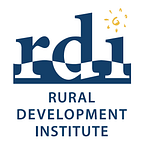The role of education in rural communities
By Farheen Sajjad
February 14th, 2019
Keywords: Rural, Education, Skills, Community engagement
Education is important for everybody, whether they are learning new facts, skills, or trades. Having the opportunity to learn always benefits the individual. Over the past years, we have seen a focus on providing education to females all over the world, arguing that girls receive an education no less then men. However, if we take a step further, we can think about educating communities, specifically rural communities. What effects would education have if we were to educate a group of people?
Educating communities means developing schools and educating children and leaders. By doing so, rural communities will lead to a healthier and more sustainable future. An education system in rural communities has the opportunity to build capacity and knowledge in the rural populace, helping them to make informed decisions about their farms and to innovate in agricultural affairs. Education also exposes the masses to information and helps prevent the misinterpretation of information. Education can lead to many positive outcomes, such as an improved ability to understand policies, procedures, rights, duties, government schemes, legislation, available benefits, and protection laws.
It is important to understand the need for good quality education in rural areas, as it helps keep rural areas populated. Young people move to urban areas for better opportunities in education and employment, improved rural education is one possible strategy for keeping them in rural areas. It was recently documented that 69% of India’s population lives in rural areas. Quality education is a pertinent tool for enhancing quality of life, creating awareness and capability, increasing freedom, and improving overall holistic human development for the people and the nation.
Education is considered a vital element in the development of a society, a system, and a country. I am convinced that a well-supported, easily accessible education system is an efficient means to make people economically conscious, and thereby, make them actively participate in their economic prosperity and cultural development. As an educator, I insist that education should be given first and foremost in the service of democracy, which demands not only to be protected against decisions but to be a part of decisions that influence society in a positive way.
In the long term, education in a rural setting should be focused on making rural people responsible for their participation in the following elements of rural development:
· Employment and income opportunities: increasing the quality of education in rural areas can significantly impact the development of employment opportunities. Studies have shown that the availability of skilled labour, transportation infrastructure, and local markets are prime factors in selecting a community for an industrial placement.
· Increase in productivity of rural labour force: education can improve labour productivity in rural areas, increasing the wealth of a region or area.
· Education develops leadership: with education, individuals gain confidence, knowledge, skills, and experience — all factors that increases an individual’s ability to effectively and efficiently lead a group of people towards success. Education helps to identify and develop those leaders in our communities who will battle against low-quality education, and poverty, leading to a successful and strong community.
To conclude, education plays a critical role in rural development, as it is a key factor in developing the people of the rural area, the community, and the land itself. With education, there is always a bright future in store for rural communities. As a student and educator, I believe that the past shows us that education is an important factor in bringing about rural development in any country.
